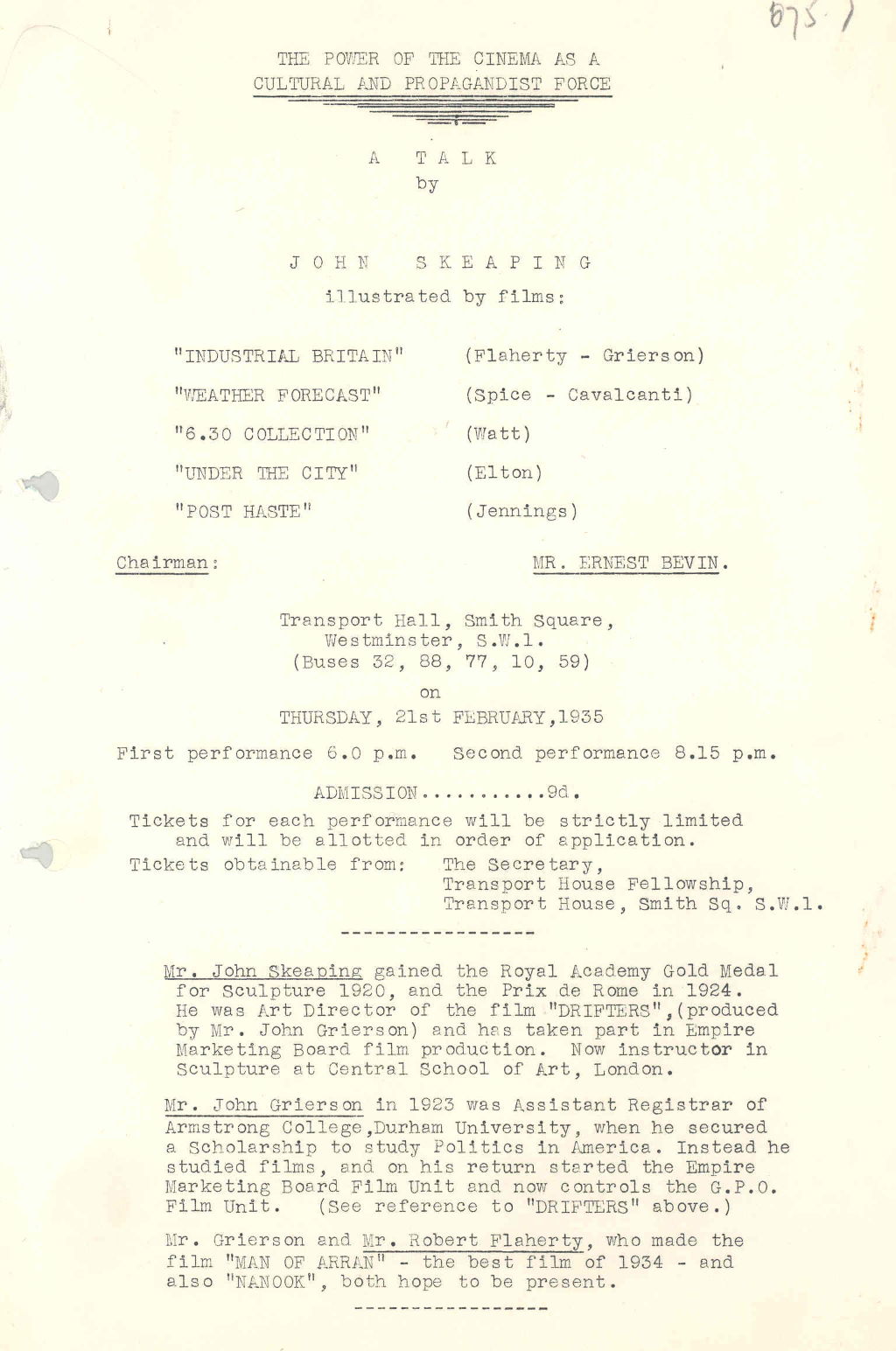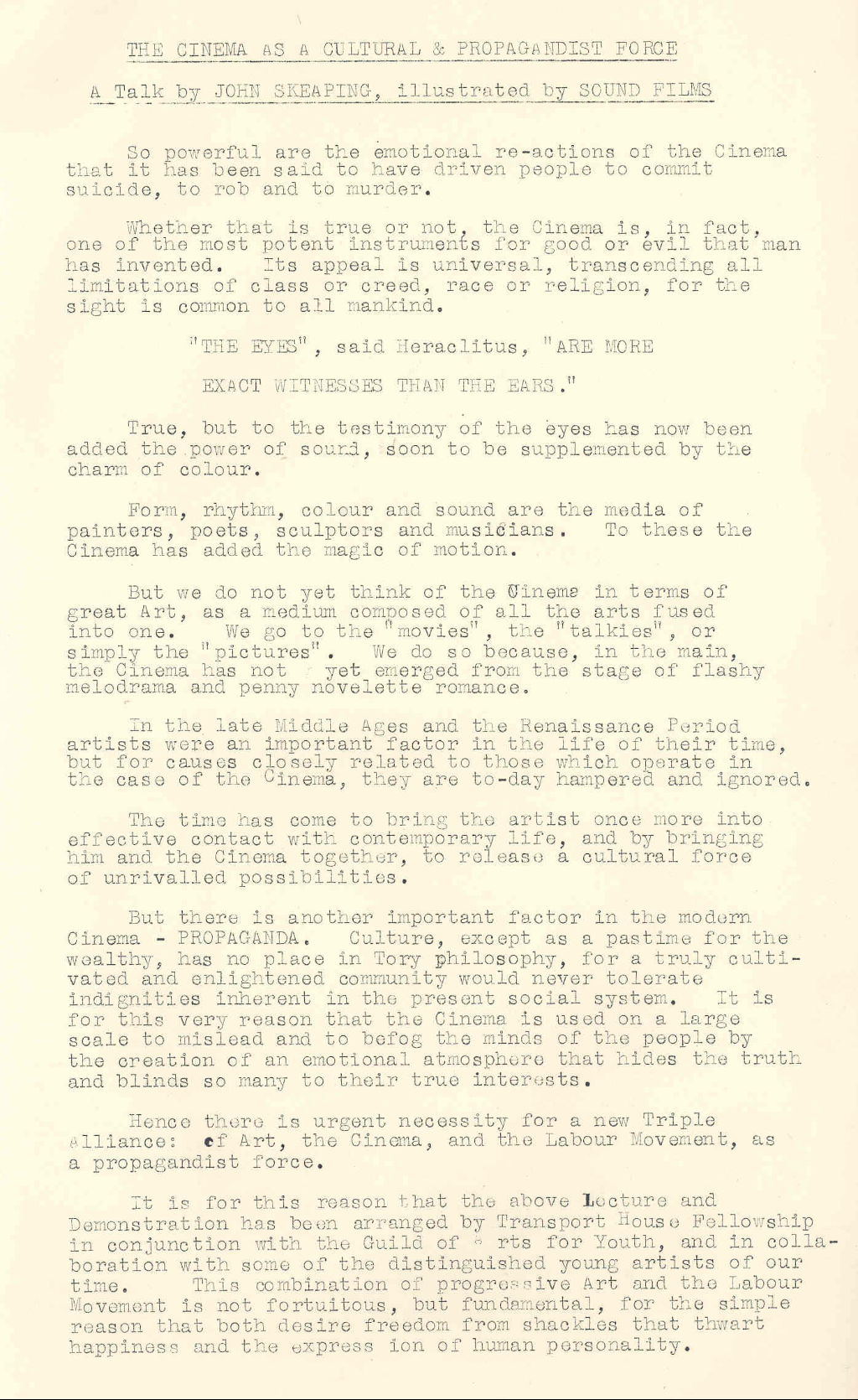‘The power of cinema as a cultural and propagandist force’, 1935
Publicity leaflet for a talk by the sculptor John Skeaping, chaired by the trade union leader (and future Foreign Secretary) Ernest Bevin. An outline of Skeaping's argument is given on the reverse of the leaflet - he argues that "cinema is, in fact, one of the most potent instruments for good or evil that man has invented", "so powerful are the emotional re-actions of the Cinema that it has been said to have driven people to commit suicide, to rob and to murder", therefore, the progressive artist needs to work within film "to release a cultural force of unrivalled possibilities" and create political propaganda.
The talk was illustrated by five documentaries produced by the influential GPO Film Unit - 'Industrial Britain' (Robert Flaherty and John Grierson), 'Weather Forecast' (Evelyn Spice and Alberto Cavalcanti), '6.30 Collection' (Harry Watt), 'Under the City' (Alexander Shaw and Arthur Elton) and 'Post Haste' (Humphrey Jennings).
Included in a file on 'Trades Union Congress and labour movement propaganda films', 1930-1939, from the Trades Union Congress archives; document reference: MSS.292/675.752/4


